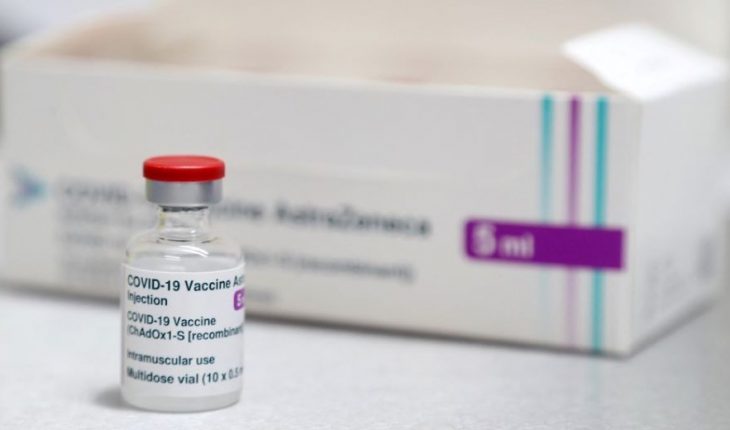“I had to get vaccinated with Cansino and Yes I’m worried. It has been published in media that this vaccine has a lower efficacy than others and that there is a lack of information on the results of phase 3 studies. In the groups of chats of professors there is doubt as to whether we are really protected and there are those who will seek to get a vaccine from another company,” says a university worker who prefers to omit his name.
Mauricio Rodríguez, spokesman for the UNAM’s Coronavirus Emergency Commission, says that there is hardly a day when he is not consulted about the efficacy of some vaccines and the possible effects of combining them in search of greater protection. The specialist says that in particular those of a single dose, such as Cansino and johnson & johnson, have generated doubts.
Read more | Sputnik V and CanSinoBio remain without WHO validation for emergency use
A woman who traveled to the United States to apply the biological and it was her turn just that of Johnson & Johnson told Animal Politico that when the family doctor learned this, he recommended that she will seek to put in Mexico the complete scheme with another vaccine, “to have more reinforcement.”
That’s not necessary for now, says Jaime Sepulveda, executive director of the Institute of Global Health Sciences at the University of California, San Francisco: “Vaccines approved by Cofepris and U.S. health authorities offer a good level of efficacy. You do not have to be looking for the best vaccine, the important thing is to get vaccinated, as soon as possible, with the one that is available. All offer protection against severe illness and death. In addition, vaccination helps prevent the emergence of new variants of the virus, more transmissible and possibly also more virulent, i.e. more severe in their clinical expression.”
They agree with Sepúlveda, Mauricio Rodríguez and Laura Palomares, director of the Institute of Biotechnology of the UNAM, who points out that of the Vaccine of Cansino, a year ago was published in the prestigious scientific journal The Lancet, the results of phase 2 that is immunogenicity and safety, in those studies it is shown that the vaccine is safe and induces an important immune response.
“We lack a formal publication, it is true, about the full results of phase 3, but just look at the data. In Mexico, although there has been an increase in cases in recent weeks, this has not been reflected in the same increase in hospitalizations or deaths. In fact in virtually every state it has no longer been necessary to maintain COVID hospitals, this is a result of vaccination. And in the group of people vaccinated with Cansino, nothing has been detected that in particular shows that they were at greater risk.”
Mauricio Rodriguez says that it should also be considered with respect to the different levels of protection of vaccines that it is difficult to compare efficacies proven in the studies because each was done under different conditions.
“They were not done in the same populations, nor at the same epidemiological moment, they did not evaluate the same thing, some evaluated symptomatic disease, others virological disease, so the results cannot be compared directly,” he says.
In addition, efficacy is one thing, which is what is demonstrated in a clinical trial with hundreds (in phase 2) or thousands of people (in phase 3) and another is effectiveness, which is what is already presented when the vaccine is applied in the open population and you see the results in real life , that is what follows and will continue to be evaluated.
As for the single-dose vaccines, Rodriguez points out that they are designed to be given only once, they come formulated with a dose of virus that was studied to work well.
So specialists call for calm about the safety and effectiveness of vaccines, but they also take the opportunity to ask that information on the results of clinical trials be published as soon as possible.
“Unam’s Commission for Emergency Care for the Coronavirus calls for the publication of the results of phase 3 of the Cansino vaccine and the updated clinical evidence of all vaccines,” rodriguez emphasizes.
Should vaccines be combined?
On the risks or benefits of combining biologics, specialists warn that there is very little information about it. So far the only mix from which results from formal studies have been presented is that of Pfizer-AstraZeneca.
In the United Kingdom, the Oxford University study, Com-COV, published in the journal The Lancet, compared the frequency of side effects in 830 adults over the age of 50, with no comorbidity or only mild to moderate, who were immunized with AstraZeneca and Pfizer, in different order.
As a preliminary result of the study, the second dose with a new vaccine was found to result in a slight increase in adverse events such as fever, shoulder pain, etc., but none serious.
The results also show that when administered at a four-week interval, both mixed schemes induce an immune response that is above the threshold set by the standard Oxford/AstraZeneca vaccine scheme.
The magazine The Lancet also published the results of the clinical trial done in Spain, CombiVacs, which demonstrates the feasibility of combining these two vaccines: Pfizer and AstraZeneca.
The information shows that a combined vaccination regimen induces a very powerful response, both in the generation of antibodies capable of preventing infection and in the activation of T lymphocytes to fight against already infected cells.
The combination of these two vaccines induces adverse reactions similar to those that occur when the two doses are of the same vaccine, according to what was reported by the Carlos III Health Institute (ISCIII), which promotes the CombiVacs trial.
The interviewees emphasize that for now there are no published results of the level of efficiency and side effects of other combinations, although there are several studies running around the world.
In Argentina, for example, the city of Buenos Aires will start a study on the combination of different vaccines against COVID-19 available in the country. The local Minister of Health, Fernán Quirós, announced that people over the age of 21 who have received the first dose of Sputnik V will be able to register voluntarily.
The official pointed out that those who want to receive one of three vaccines can be registered: Sputnik V component 2, Sinopharm or AstraZeneca, volunteers will have blood tests before and after being vaccinated and will be followed for four weeks to document adverse effects and immune response.
The government of Buenos Aires made that decision in view of the risks presented by variants of COVID, especially the Delta, and the delay in the arrival of new batches of Sputnik V.
Mixing vaccines is something that governments are going to look for and evaluate, in fact, just given the scarcity of biologics and the flexibility that comes from being able to apply one dose first and then a different one.
But for now, almost everything is under evaluation. “There are few studies in the world on the safety and efficacy of combining vaccines. Those that have been done have shown good results. That is an incentive for us to do more research into what the level of protection would be with other possible combinations. In Mexico there are five different vaccines available, so there, for example, there is an opportunity to do a study. But we do not know so far what the result of making combinations would be, beyond that of Pfizer and AstraZeneca, “says Sepúlveda.
At this point the three specialists point out that it will be the authorities who determine if vaccines can and should be combined, especially as a matter of availability and if it is necessary to get second doses of Cansino or third doses of others, but this, they point out, can not be an individual decision based on the fear of not having enough protection, and without considering that there are still many people to access a dose of any vaccine.
Perhaps it will be necessary to get reinforcements of all the vaccines, “but not now, that will be later and will be determined by the health authorities of each country,” says the director of the Institute of Biotechnology of the UNAM.
What we do at Animal Politico requires professional journalists, teamwork, dialogue with readers and something very important: independence. You can help us continue. Be part of the team.
Subscribe to Animal Politico, receive benefits and support free journalism.#YoSoyAnimal





